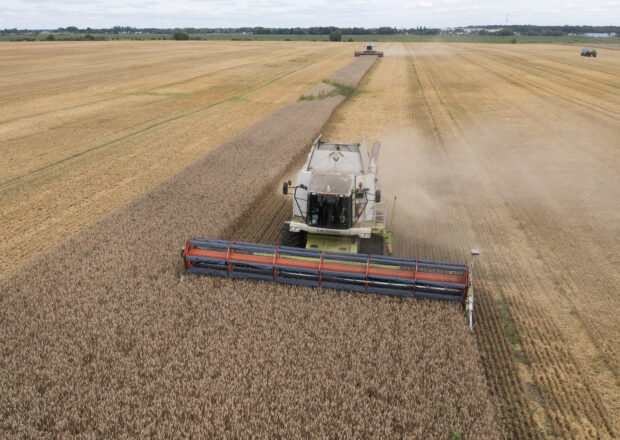There is growing concern that Russia may choose not to extend the United Nations-brokered deal allowing grain to be exported from Ukraine to countries suffering from food shortages. Ships are no longer heading to Ukraine’s Black Sea ports, and food exports have decreased. The breakthrough agreement, negotiated by Turkey and the UN last summer, aimed to alleviate a global food crisis. Moscow claims it is facing obstacles, despite evidence showing record amounts of wheat being exported. The fourth renewal of the Black Sea Grain Initiative is up for consideration, but Russian officials have previously threatened not to extend the deal only to ultimately do so for a shorter period. The UN and other organizations are working to preserve the fragile agreement, as both Ukraine and Russia are major suppliers of wheat, barley, vegetable oil, and other food products to countries in Africa, the Middle East, and parts of Asia. If the deal is not extended, it could have severe consequences for countries at risk of famine, such as Somalia, Ethiopia, and Afghanistan, and exacerbate food security issues in areas already facing conflict, economic crises, and drought. Maintaining the agreement is essential for Russia’s public image and global goodwill. The amount of grain leaving Ukraine has already decreased due to Russia’s alleged obstruction of joint ship inspections and refusal to allow additional vessels to participate in the initiative. The decline in grain exports has had a significant impact, with the initiative reaching a low point of 1.3 million metric tons in May. However, there was a slight increase in June as shipment sizes grew. If the agreement is not extended, countries that relied on Ukraine for grain imports will need to find alternative sources, likely turning to Russia. The UN is currently negotiating with Russia to encourage its continued participation in the initiative. Ukraine, on the other hand, has faced significant challenges due to the closure of the grain corridor. Russia claims that Western sanctions have impeded its own exports, particularly in terms of financing and insurance. While these sanctions do not affect food and fertilizer, Moscow is seeking exceptions to restrictions on the Russian Agricultural Bank and transportation of ammonia to a Ukrainian Black Sea port. However, the war has damaged the ammonia pipeline, complicating matters further. Despite its claims that the agreement has not been beneficial, Russia has actually increased its wheat exports to record highs thanks to a large harvest. Meanwhile, Ukraine’s shipments have plummeted, significantly impacting its agriculture-dependent economy. Nonetheless, there is enough global wheat stock to meet demand, with Europe and Argentina expected to increase shipments. The potential expiration of the Black Sea deal may only lead to a temporary rise in grain prices, as global markets adapt quickly. Ukraine does have alternative routes for its food exports, such as land or river transportation through Europe. However, these methods have lower capacities than sea shipments and have caused divisions within the European Union. The international community must prioritize forging a long-term deal and developing sustainable solutions to address food insecurity. While the UN Food and Agriculture Organization’s food price index has decreased from record highs, the cost of food production remains high due to factors such as COVID-19, conflict, and drought. Weakening currencies in developing nations reliant on imports are also keeping local prices high. It is crucial to address these issues and ensure access to affordable food for vulnerable populations.
Denial of responsibility! VigourTimes is an automatic aggregator of Global media. In each content, the hyperlink to the primary source is specified. All trademarks belong to their rightful owners, and all materials to their authors. For any complaint, please reach us at – [email protected]. We will take necessary action within 24 hours.


